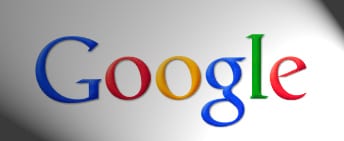
I was fortunate enough to be raised in a family that, from a young age, allowed me to use the Internet as a gateway to knowledge. I am grateful they saw the value in Google as a tool for finding information.
However, an article recently published on NPR, suggestively titled “OK, Google, Where Did I Put My Thinking Cap?” questions the intellectual value of using Google, particularly as com- pared to learning and memo- rizing information on one’s own. Throughout the article, it is implied that obtaining information digitally rather than non-digitally could incur about negative conse- quences for today’s techno- logically-obsessed society.
I disagree with any claims that Google is detrimen- tal. Our society has always been fueled by technological advancement and the ben- efits which arise out of such advancement outweigh the possible pitfalls of the old techniques.
The art of learning is always progressing, and implying that Google is somehow halting that pro- gression is foolish. It is clear, through an examination of the history of information technology, that Google is not the first step in the direc- tion of shortening our mem- ory spans.
The old ideal of long term comprehension is that of Greek oral teaching, a way of educating through spo- ken word. When writing became commonplace, the need to commit a large cache of information to memory became obsolete, thus taking away the value of memorizing most information. Google, as well as the Internet as a whole, is the embodiment of
the next progression from written word, the ability to obtain knowledge with near limitless potential. Printed texts are no longer the pri- mary way to research; Google simplifies the ability to find information and places just a few keystrokes away.
While it is true that many Google searches are not of intellectual value, it is the ability to take out our smart phones and type in search terms such as “Japanese word for cat” or “the correla- tion of bacon and cancer” or “Einstein’s theory of relativ- ity” that makes the resource worthwhile. It is the element of accessibility that proves Google’s value.
As the presidential elec- tion carries on with each pri- mary, Google is an excellent place to find out politician’s stances as well as fact-check their speeches. The constant, easy access to truth can help make politicians more hon- est. Google is a sustainable source of all encompassing instant information on all forms of knowledge found in the world.
The argument that Google inhibits critical thinking may have a partial point, but it is foolish to let that overrule the positives of Google. It may be possible to waste hours searching for cute animals on Google, but the streamlined and comprehensive access to information makes up for that. This expansive plain of articles, books, videos and other sources can provide multiple perspectives of learning on one particular subject in a way that a single text cannot.

